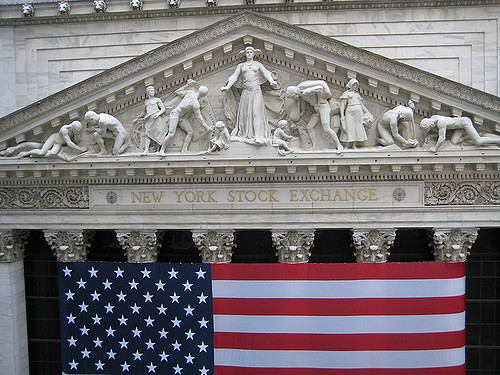According to a December 14 investor note from Barclays, “Investor momentum around portfolio decarbonization will likely continue to build.”
Barclay’s top takeaways for investors include:
- Accelerated transition to renewables: The Paris Agreement will tighten global climate policy over the years.
- Increased pressure on companies to disclose their carbon risks: The Financial Stability Board’s newly-announced Task Force for Climate-Related Financial Disclosure (TCFD), chaired by Michael Bloomberg, will lead to greater awareness among investors of the carbon intensity of different companies.
- Portfolio measurement, divestment and decarbonization: The increasing focus on climate risks has prompted investment funds to evaluate the carbon-intensity of their portfolios in these three ways. For example, the Portfolio Decarbonization Coalition increased their assets committed to decarbonization from $100bn to $600bn during the COP.
The Barclays note builds upon predictions laid out in their pre-COP equity research. The note is available upon request.
In the wake of the Paris Agreement, investment analysts and business leaders overwhelmingly echoed Barclays’ financial advice:
- The Economist reported, “Perhaps the most significant effect of the Paris agreement in the next few years will be the signal it sends to investors: The united governments of the world say that the age of fossil fuels has started drawing to a close.”
- Nancy Pfund, managing partner at DBL partners told the New York Times, “People are boarding this train, and it’s time to hop on if you want to have a thriving, 21st-century economy.”
- Patrick Pouyanne, CEO of French oil giant Total SA told Bloomberg Business, “As a major oil and gas company, we are clearly at stake in these discussions [but] an optimist sees in every difficulty an opportunity. I’m definitely an optimist; I have to be.”
- Michael Skelly, president of Clean Line Energy Partners, a Houston-based company that develops long-haul transmission lines for renewable energy, saw the accord as a pivot point for a changing industry. He pointed to the investments that the United States made during the last century in its power grid and hydroelectric power. “Both have provided low-cost electricity in the ensuing decades,” he said. “In 2050, we will look back at the investments prompted by the Paris accords and see exactly the same phenomena.” (New York Times, December 13, 2015)
- Richard Branson warned that denial of climate change among Republican lawmakers could have dangerous economic consequences for the United States. He told CNN: “It’s unbelievable that anybody is questioning that … They must be doing it for political purposes. Nobody in the rest of the world is taking that kind of talk seriously anymore…It would be very sad if America is left behind on this one. You could create millions of jobs … That’s what Americans should be striving for.”
- According to Business Green, “For business, the sharp end of the Agreement is in the national plans or INDCs*. We analysed the major ones in our Low Carbon Economy Index, which signal to business a step change in effort to tackle emissions at the national level.”
- Mindy Lubber, president of Ceres, told CBS news that major financial institutions like Bank of America and Citigroup “are seeing that investing in a fossil fuel economy is no longer viable.”
- Reuters noted that shares in renewable companies rose in the wake of the Paris deal, while coal stocks fell.
Investors had signaled the coming change even before negotiators finalized their work:
Ahead of the Paris negotiations Bank of America Merrill Lynch said “coal has become a stranded asset” in their climate change solutions primer for clients. Sarbjit Nahal, head of thematic investing strategy at Bank of America Merrill Lynch told Bloomberg TV before the Paris Agreement was adopted, “As investors we need to be very cognizant of this whole concept of stranded assets. The fossil fuel reserves that we’re potentially never going to be able to get out of the ground. We can see that with coal, where we’ve had anywhere from $2.6 to $4 trillion under management which has been divested and I think as we as a society try to reach that 2 degree target, the next line of attack is really going to be oil and ultimately even gas.”
Goldman Sachs noted that the four biggest US coal companies lost 90 percent of market capitalization in 2015: “These companies struggled as coal prices fell and clean energy options became more competitive.”


